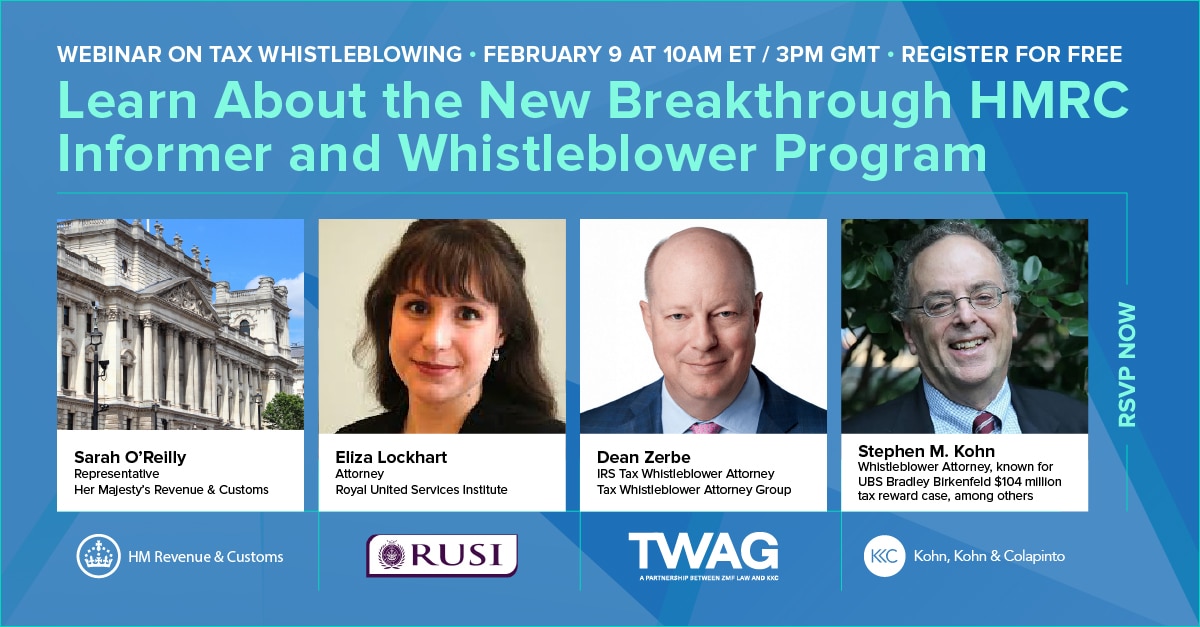Leading Whistleblower Attorneys File Brief Calling for De Novo Review of IRS Whistleblower Award Claims

The National Whistleblower Center (NWC) has filed an amicus brief in the United States Court of Appeals for the D.C. Circuit arguing for a de novo standard of review in tax whistleblower award claim appeals. The brief was written by Kohn, Kohn & Colapinto (KKC) founding partner Stephen M. Kohn alongside Dean Zerbe of Zerbe, Miller, Fingeret, Frank & Jadav.
The brief was filed in the case of Lissack v. Commissioner, which concerns the denial of a whistleblower award under the Internal Revenue Service (IRS) Whistleblower Program. The IRS denied the award claim of a whistleblower who reported improper tax deductions made by a condominium development corporation. According to the IRS, the $60 million in unpaid taxes collected by the agency from the company did not stem from the specific allegation made by the whistleblower. The whistleblower appealed this decision to the U.S. Tax Court which upheld the denial. The whistleblower further appealed the decision to the D.C. Circuit.
According to NWC’s brief, the Tax Court erred in its review of the whistleblower award denial because it did not provide a de novo review of the facts of the case. Instead, the Tax Court narrowly reviewed the denial based on an “arbitrary and capricious” standard. This means the Tax Court was only reviewing whether or not the denial was made arbitrarily, not whether or not the denial was accurate based upon the facts of the case.
In the brief, Kohn and Zerbe claim that Congress clearly intended for de novo review of tax whistleblower award claims and that the D.C. Circuit should therefore reverse the decision of the Tax Court. “A review of the statute through its legislative history and relevant context leaves no doubt that the meaning of the words in the statute’s text when adopted by Congress meant to provide for de novo review for [whistleblower award] claims,” the brief states.
“It is certainly not an overstatement to say that the future success of the IRS Whistleblower Program is in the hands of this Court,” the brief continues. “To allow the IRS to have full discretion over the decision-making process for rewarding these whistleblowers without appropriate judicial review would result in an inevitable chilling effect on the IRS Whistleblower Program. To do so would return the program to the failures of the previous discretionary program with its arbitrary and capricious standard of review, exactly what Congress intended to prevent with the 2006 amendments. A failure to act by the Court would bring harm to those whistleblowers who have bravely stepped forward with critical details of tax evasion and would create a disincentive for future informants to come forward with beneficial information.”
Latest News & Insights
January 27, 2026





